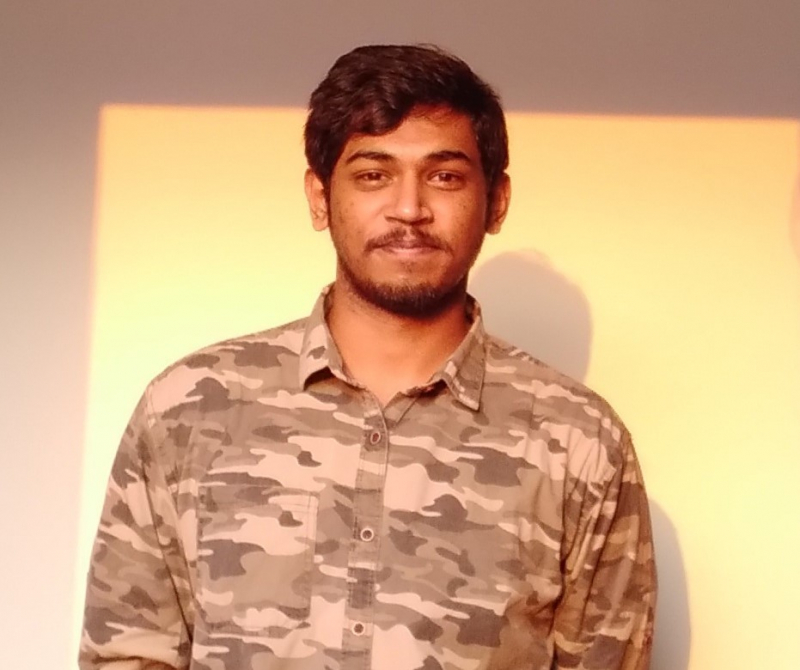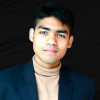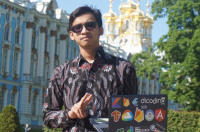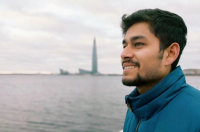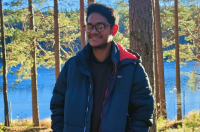Tell us a little bit about yourself.
I did my Bachelor’s in electronics and communications engineering at Dayananda Sagar University. This field covers bits of different subjects such as mechanical electronics, computer sciences, and information sciences. So that was where I started discovering technology. And that’s how I got into big data and machine learning – the subjects I’m studying here at ITMO.
How did you learn about ITMO and this particular program?
I first found out about ITMO on studyinrussia.com, but I also saw it in one of the global university rankings. As for the program, I found it on ITMO’s website and it seemed unique compared to all the other programs on big data that I’d seen. It focused on big data, which I was interested in but also featured many specializations – for instance, healthcare, the most intriguing one for me that I am pursuing right now.
How do you want to apply big data in healthcare?
In India, healthcare doesn’t depend so much on data and the digitalization that happens is about the machines, not the data collected. A lot of things are done manually, but when it comes to digitalization, it is still in the slow phase. The information is stored partly in analog and partly in digital form so there is a lot of data to be extracted. And it is still exploitable, we can actually use what we extract to improve our lives – for instance, the way we treat patients and address diseases.
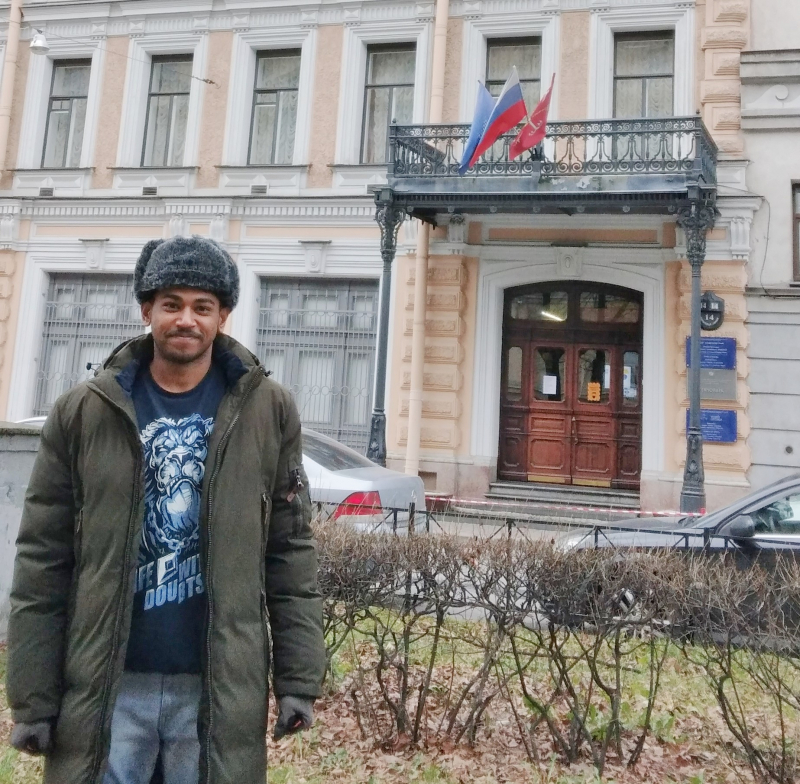
Ashish’s goal is to apply big data and machine learning to improve the healthcare industry. Photo courtesy of the subject
What project are you going to work on during your Master’s?
I am going to devote my time to process mining, which is deriving more information on each transaction stored in electronic records at hospitals. Thankfully, I have some background in this field as for my Bachelor’s thesis I worked on a medical parameter monitoring device. It was a crucial topic to delve into during COVID-19 times and that was how I got into looking for medical applications of technology and that’s what inspires me to continue.
What are the skills needed to pursue your degree?
I’ve asked myself that when I was applying because electronic engineering is not the same as big data and machine learning, it has more to do with hardware and machinery. For big data, on the other hand, you need to know your software and have some advanced programming skills, for instance, you’ll have to use Python quite often and build complex apps with Java, C++, or C#.
Big data is a buzzword in almost any sector nowadays. What are some of the strategies that can be used to manage such huge volumes of data?
The amount of data truly keeps multiplying every day. One of the strategies to work with it is to separate the processes that need to be done between different teams so that one is responsible for storage, one for processing, and one for data extraction. That way everything is done separately – either inside one company or between several companies. This is one of the main tactics in use now.
Another one relies on cloud computing, and companies specializing in it have access to more storage and functions. Data companies are integrated inside these companies – and they provide services in extracting information. Some service providers also rely on machine learning algorithms for data extraction. It can be quite an investment but in return, the company gets an algorithm that covers all their demands.
Where do you see yourself after completing your Master’s studies?
Right now, I am happy to be doing this program. Since I’ve chosen healthcare, there are quite specific paths that I can potentially follow and I see myself doing research. Another option is working in the industry, but I think research provides more opportunities to give something back to society. I see myself pursuing a PhD or even a DSc; this last degree is actually very intriguing to me. I am thinking of completing it here at ITMO because I’d already know the professors and be comfortable with using the lab.
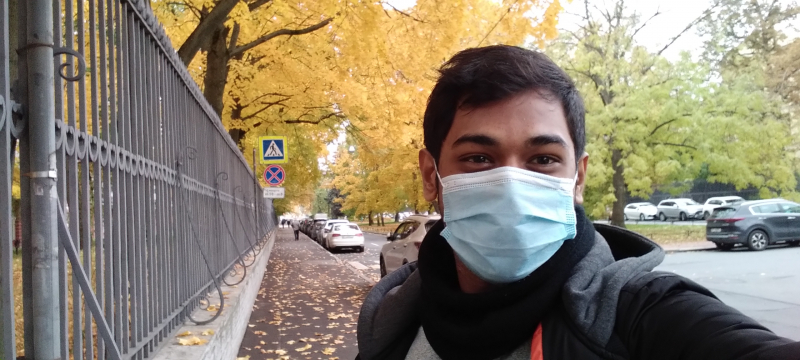
Ashish wants to pursue a PhD or a DSc after completing his Master’s studies. Photo courtesy of the subject
How has your experience been so far in Russia? Is it your first time here?
Yes, it is my first time. Initially, I had to take a long way to get here because of the pandemic – so I first had to go to Dubai, then I took a plane to Moscow, and a train to St. Petersburg. Coming to university is always a unique experience – and here it is nicely complemented by walks around the city. Exploring St. Petersburg is very pleasant and the weather is comfortable and nice even if a tad cold. However, I am still adjusting to the food here and looking for ways to cook my own lunch and dinner.
Have you visited any of St. Petersburg’s tourist attractions?
I haven’t been to many places but I did visit St. Isaac’s Cathedral. I went to the colonnade first and got an overview of the city center from above – it was cold but totally worth it. Then I went to Kunstkamera which exhibits some of the strangest things I’d ever seen. This was not necessarily the most amusing place but nevertheless, an interesting one to explore. I’ve also been to the Zoological Museum and then went to the spit of Vasilievsky Island to admire the stately Rostral Columns there. One more place I was taken away with was the Russian Railway Museum – it was an amazing experience. This weekend, I am looking forward to my first visit to the Hermitage. And of course, there is much more stuff on my bucket list, for instance, I would love to visit Kronstadt and see its famous fortifications before it snows.
Do you stay in a dormitory here?
Yes, I live in the dormitory on Lensoveta St., near Moskovskaya metro station. It’s a wonderful place even though it’s a little far from the city center. I have stores and small restaurants within walking distance, as well as tram and bus stops, not to mention the metro – so I can get to the city center very fast. The only minor drawback is that it takes about 30 minutes to get to any of ITMO’s campuses but it doesn’t really bother me.
Do you play any sports?
Yes, I do, I love football and I even visited the KronBars introductory session in September, where I learned about ITMO’s team and all the details.
Are you familiar with Zenit Football Club?
Ah, yes, I think they have light blue jerseys. A couple of days ago I saw a whole bus of people wearing the club’s merch, so I guess there was a game that day. I know that the team is now qualifying for the Champions League and I am hoping to watch one of the games at the stadium here.
Interviewed by Subhrajit Barua
Written by Catherine Zavodova
